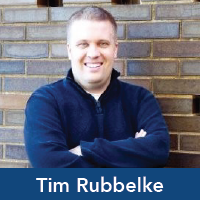Almost 2 years into the COVID-19 pandemic, it seems like we’ve talked to death virtual meetings, working from home, and other changes. It’s also becoming clear that our programs have shifted permanently. For many of us, this new format will persist in some way beyond the pandemic, either as a “hybrid model” or as full-time work from home.
The conference landscape has changed significantly too. While the emails I’m getting from various organizations imply that 2022 will be a return to travel and hotel conference centers, many conferences—including the 2022 PRIM&R Annual Conference—will continue to have a virtual option. After a full year of attending virtual conferences, I’d like to reflect on what worked for me and what didn’t.
Starting with the positive, virtual conferences are still a way to consider new ideas and gather best practices from other programs. Zoom-based networking sessions aren’t perfect by any stretch, but they allow a chance to mingle with others and discuss common challenges. I found it especially useful to be able to see how other programs adapted to working from home, and how many will be keeping at least some aspect of it. Being able to have these conversations in virtual room is better than trying to gather this information in asynchronous ways such as email lists or forums. Even with the virtual format, the fundamentals of what a conference “is” (e.g., the exchange of ideas) stayed intact.
Having said that, I think there is much lost in a virtual format, namely the informal networking and conversation. Despite the effort put into providing networking opportunities and smaller group discussion as part of conference sessions (something that is logistically hard to do in person), they lack the organic element that a hotel lobby happy hour or breakfast meet-and-greet provide. Similarly, the online platform makes it difficult to convey nuance in questions or clarify if the question was misinterpreted. Certainly, email follow-up is an option, but it too lacks the benefits of real time discussion.
While I much prefer in-person conferences, I think having a virtual option alongside the in-person PRIM&R Annual Conference is a good thing. As PRIM&R seeks to bring the entire research oversight community under one roof, this virtual option opens avenues to new attendees who otherwise may have been locked out. For smaller programs where budgets may be constrained, or whose staff may not have the time to travel, a virtual option allows for some real-time sharing of knowledge and best practices that is crucial to developing our various programs. Conferences work best when people with a variety of perspectives can connect with each other, and I hope next year’s hybrid model will allow maximum participation and collaboration, with less of the drawbacks.
 Tim Rubbelke, PhD, is the Senior Research Compliance Specialist in the Research Conflicts of Interest program at Washington University in St. Louis. He assists the Conflict of Interest Review Committee in the assessment and management of complex cases of financial conflicts of interest, including those related to startups commercializing university-owned IP. Tim has a PhD in Health Care Ethics from St. Louis University, focusing on both human subjects and animal research ethics.
Tim Rubbelke, PhD, is the Senior Research Compliance Specialist in the Research Conflicts of Interest program at Washington University in St. Louis. He assists the Conflict of Interest Review Committee in the assessment and management of complex cases of financial conflicts of interest, including those related to startups commercializing university-owned IP. Tim has a PhD in Health Care Ethics from St. Louis University, focusing on both human subjects and animal research ethics.
Save the date for the 2022 PRIM&R Annual Conference, taking place November 14-18 in Salt Lake City, UT (with a virtual option). This conference will continue to provide all the benefits of PRIM&R’s IACUC and AER conferences, and will bring both the animal care and use and human subjects protections communities together under one roof to better support the field and our constituents in thinking holistically about the research continuum and achieving our shared goal of advancing ethical, responsible, and high-quality research.


I have been reflecting on how things keep on changing. Who on here recalls when we could not make long distance phone calls? Everything was done by mail. Then we got some modern miracles: typewriters that remembered 25 words at a time, faxes, something called the internet! But it took time to adjust. PIs could not say they had approval until they received the paper copy. We no longer needed the rolodex cards to keep track of studies. We could start to talk with IRBers who worked more than 25 miles away. Once a year – if our institution would send administrators or anyone – we could go to PRIM&R to meet, discuss and learn.. This most recent change was forced upon us but will leave behind lasting positive opportunities.